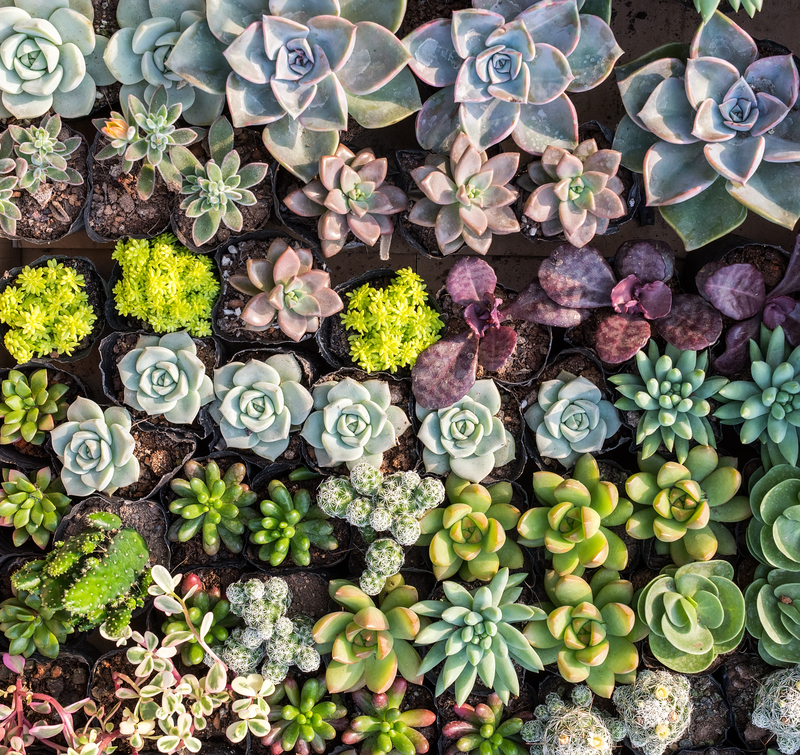Root Your Gardening Knowledge with These 9 Tips
Posted on 27/08/2025
Root Your Gardening Knowledge with These 9 Tips
Gardening is more than a hobby; it's an art, a science, and a source of pure joy for many. Whether you're a novice with a tiny patio or a seasoned grower tending a bustling backyard, there's always something new to cultivate in the world of horticulture. Nurturing your gardening skills and understanding the fundamental principles can transform your garden into a thriving oasis. In this comprehensive guide, we'll root your gardening knowledge with nine expert tips that will help you grow healthier, more beautiful plants all year round.

1. Understand Your Local Climate and Soil
Before you set your first seed, it's essential to become intimately familiar with your garden's environment. Knowing your local climate and soil is foundational to successful gardening. Every plant has unique requirements, and understanding these environmental factors will ensure your efforts are rewarded.
- Study Weather Patterns: Learn which USDA Hardiness Zone your garden falls into. This determines the best plants for your area and when to plant them.
- Test Your Soil: Use a soil testing kit or contact your local cooperative extension to analyze pH, nutrients, and texture.
- Amend Wisely: Enrich poor soil with organic matter such as compost, manure, or leaf mold to improve structure and fertility.
Taking these steps ensures your gardening roots are embedded in the right foundation for flourishing growth.
2. Choose the Right Plants for Your Space
Selecting appropriate plants is a key element in successful gardening. Not every plant thrives in every landscape or climate. When expanding your gardening knowledge, consider the following:
- Sunlight Requirements: Group plants according to their sun needs--full sun, partial shade, or full shade.
- Space Matters: Check mature plant sizes and allow enough room for healthy growth. Avoid overcrowding, which can lead to competition for nutrients and light.
- Native vs. Exotic: Native plants are adapted to your environment, require less water, and resist local pests more effectively.
By making informed selections, you'll anchor your garden's success for seasons to come.
3. Master Watering Techniques
Water is the lifeblood of any garden, but it's important to cultivate wise watering habits to conserve resources and foster healthy plants. To enhance your gardening understanding, adopt these strategies:
- Water Early: Irrigate in the early morning to prevent evaporation and reduce leaf disease.
- Deep, Infrequent Watering: Soak soil deeply rather than shallowly sprinkling. This encourages roots to grow deeper, resulting in stronger plants.
- Use Mulch: Apply a 2-3 inch layer of organic mulch (bark, straw, or compost) to retain moisture and regulate soil temperature.
With these methods, you'll ensure that your garden's roots are consistently and efficiently hydrated.
4. Feed Your Soil, Not Just Your Plants
A common gardening mistake is focusing on plant feeding rather than soil health. Remember, healthy soil equals healthy plants. Deepen your garden knowledge with these tips:
- Compost: Add kitchen scraps, grass clippings, and leaves to your compost pile to create a nutrient-rich amendment.
- Natural Fertilizers: Consider well-aged manure, bone meal, or seaweed for a slow release of nutrients.
- Avoid Over-Fertilizing: Too much fertilizer can harm beneficial soil microbes and cause root burn.
Feeding your soil organically builds a resilient, living ecosystem beneath the surface, laying down strong roots for plant prosperity.
5. Rotate Crops and Practice Companion Planting
Avoid depleting soil nutrients and minimize the risk of pest outbreaks by rotating crops each season. Companion planting--grouping compatible plants together--also enhances growth and protects crops naturally.
- Rotate Annually: Never grow plants from the same family (like tomatoes and peppers) in the same spot more than once every three years.
- Pair Plants Wisely: For example, plant basil near tomatoes to deter pests and enhance flavor.
- Increase Biodiversity: Plant a variety of crops and flowers to attract pollinators and beneficial insects.
_Developing this aspect of your gardening expertise_ not only improves soil health but can make your gardening experience more rewarding and productive.
6. Prune, Weed, and Deadhead Regularly
Consistent garden maintenance is critical for vigorous, robust plant life. Strengthen your gardening skills by mastering these care routines:
- Prune: Remove dead, diseased, or damaged branches to encourage fresh growth and improve airflow.
- Weed: Weed weekly to reduce competition for water and nutrients, making sure to pull out roots to prevent regrowth.
- Deadhead: Remove spent flowers from annuals and perennials to stimulate continuous blooming.
These simple chores can supercharge your garden's visual appeal and plant vitality.
7. Watch for Pests and Diseases
One of the most important ways to grow your gardening knowledge is learning how to identify and manage common garden pests and diseases.
- Inspect Regularly: Check leaves, stems, and soil for signs of problems like holes, discoloration, or wilting.
- Encourage Beneficial Insects: Ladybugs, lacewings, and spiders naturally keep pest populations in check.
- Organic Controls: Use neem oil, insecticidal soap, or homemade sprays for a more eco-friendly approach to pest management.
Early detection and intervention can save your crops and preserve the beauty and health of your landscape.
8. Embrace Seasonality and Continuous Learning
The best gardeners are always learning. Each season brings fresh opportunities to grow your gardening understanding and try new techniques.
- Plan Ahead: Start seeds indoors in late winter, and create a seasonal planting calendar.
- Experiment: Try unfamiliar varieties or gardening methods such as vertical gardening, raised beds, or hydroponics.
- Connect with Others: Join local gardening clubs, attend workshops, or follow gardening blogs and forums to share experiences and advice.
With each success and setback, you'll become a more resilient, innovative gardener.

9. Create a Sanctuary for Nature and Yourself
The most rewarding gardens serve as sanctuaries for both humans and wildlife. Root your gardening journey in sustainable, harmonious practices that benefit the environment.
- Water Wisely: Collect rainwater or use drip irrigation to minimize waste.
- Encourage Pollinators: Plant bee- and butterfly-friendly flowers like coneflowers, lavender, and milkweed.
- Design for Relaxation: Add benches, pathways, or a meditation area so your garden is a restorative space for you, too.
- Wildlife Habitats: Incorporate bird feeders, bat houses, and native shrubs to offer shelter and food for garden visitors.
By treating your garden as an ecosystem, you'll see it blossom into a lush, life-filled retreat.
Conclusion: Nurture Roots for Lifelong Gardening Success
As you implement these nine essential tips, you'll **root your gardening knowledge** more deeply than ever. Remember, gardening is a journey filled with discovery, creativity, and wonder. Each seed sown, every lesson learned, and each season experienced will make you a more adept, intuitive gardener. So dig in, nurture your garden's roots--and your own sense of accomplishment--because knowledge and patience grow the most beautiful gardens of all.
Plant the seeds of expertise today, and watch your garden--and gardening skills--flourish for a lifetime.
Latest Posts
Effective Strategies to Winterize Your Garden
How to Design Beautiful and Functional Garden Seating
The Art of Reviving Soil from Organic Waste

